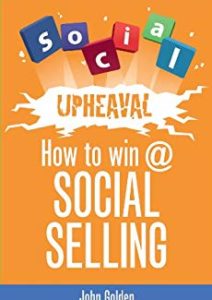Are sales and marketing equipped to evolve and change? Let’s take a look at this through the lens of psychology.
In a very interesting 2003 Journal of Applied Psychology piece on Resistance to Change, Shaul Oreg of Cornell University reviewed the literature around the topic, including the different traits associated with it. He developed a Resistance to Change Scale that had four major factors at its core:
1. routine seeking
2. emotional reaction to imposed change
3. short-term focus
4. cognitive rigidity
Let’s take a look at each one of these factors and apply them to sales and marketing professionals (although in a somewhat non-scientific and generalized fashion!).
Routine Seeking: Do you know any salespeople that love their jobs because they are predictable, with every day being the same as the last? If you think about it, sales positions (especially those dealing with complex sales) are just about as unpredictable as it gets.
On the marketing side, given the rapid changes in tactics and tools over the past few years, the conclusion would have to be drawn that routine work has been disrupted by marketing automation, social media, and the ever increasing push for more measurable outcomes.
It is fair to say that “routine seeking” is a non-factor for both.
Emotional Reaction to Imposed Change: Let’s face it, in the best of times sales is a roller-coaster of emotion. A buyer is constantly imposing change on the seller constantly, such as changes in buying criteria and decision makers–and of course the dreaded change of mind! And while it’s true that salespeople often wear their emotions on their sleeves, any with long and successful selling careers learn to bounce back quite rapidly.
Over in marketing it’s often not as dramatic or personal, but buyers and the market impose change upon them constantly, too–changes such as how they wish to be marketed to. As an example take the move from direct mail to social media, or the radical short from outbound to inbound marketing that has occurred in a relatively short period of time.
For most people, any change brings some kind of emotional reaction. In the case of sales and marketing, though, given the fact that both operate on the leading edge of change as dictated by the buyer, they should be able to overcome any adverse emotional reaction relatively quickly.
Short-term Focus: This factor to an immediate inconvenience of change, or its short-term adverse effects.
For sales, I would again argue that both of these are integral parts of the everyday sales experience. When sudden unforeseen changes occur with a prospect, or they have to get up to speed with a new and improved product, a sale will often have to be recalibrated. Getting up to speed with a new and improved product is the one that usually results in the most angst with sales professionals, but unless there is a fatal product flaw or wholesale market rejection, the noise level drops pretty quickly as the product becomes stable, and salespeople achieve a comfort level with selling it.
While marketing may have had a somewhat smoother ride traditionally that too has changed. The greater scrutiny on return on investment and the explosion of marketing automation tools has shifted the emphasis away from the creative and towards the scientific. Couple this with the ever increasingly savvy buyer who often relies more on third-party reviews and information than on anything marketing produces, and you get a world where there is now a lot of short-term pain.
So yes the short-term impact of change will cause stress for both sales and marketing, but sales have always had to deal with that and marketing is now quickly learning to deal with it too.
Cognitive Rigidity: This factor taps into the frequency and ease with which people change their minds. In the context of change it relates to accepting new ideas and ways of doing things. It is often talked about in conjunction with the “tyranny of experience” as new ideas conflict with the way things have been done in the past.
In sales clinging to the old way of doing things usually has a pretty obvious and immediate impact on the individual, i.e. they sell less and their earnings shrink. So there is an inherent motivation to be open to new ideas, which is not to say, of course, that all are. There are as many beliefs among sales professionals as there are proven methodologies. Many will still advocate that the relationship aspect of sales trumps all, while others will look more to the value creation piece as key. Despite the fluid nature of sales there can be a certain cognitive rigidity when salespeople have to internalize a new way of selling (think social selling) when they have had success with the old way, hence the tyranny of experience.
Marketing in many ways is probably going to display a high degree of cognitive rigidity when faced with the prospect of having to learn and adapt many of the skills and tactics more traditionally associated with sales. This is going to require an openness to change far beyond adopting new technologies or new media.
In essence of the four, this factor is likely to be the biggest inhibitor to change for both disciplines but it will also likely be the greatest predictor of which organizations will come out on top in the future. The faster sales and marketing groups can cognitively accept the changes, the greater the advantage they will have over their competitors.
Conclusion: Now having spent some time looking at the challenge of initiating change in how sales and marketing operate, their roles, their skills and tactics, the more I am convinced that both groups are much better equipped to adopt such change than many give them credit for. There are many other functions or job roles within an organization that if you measured against the four factors listed here would show a far greater propensity to resist change.







Comments (1)
wow this great